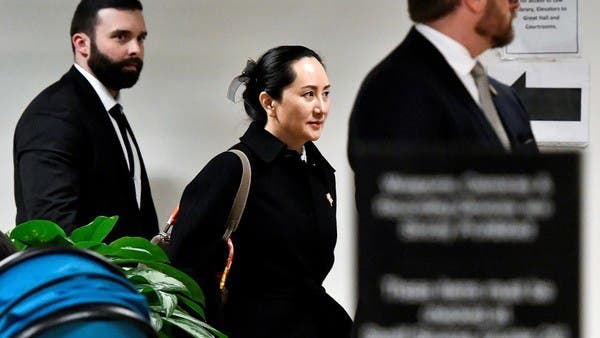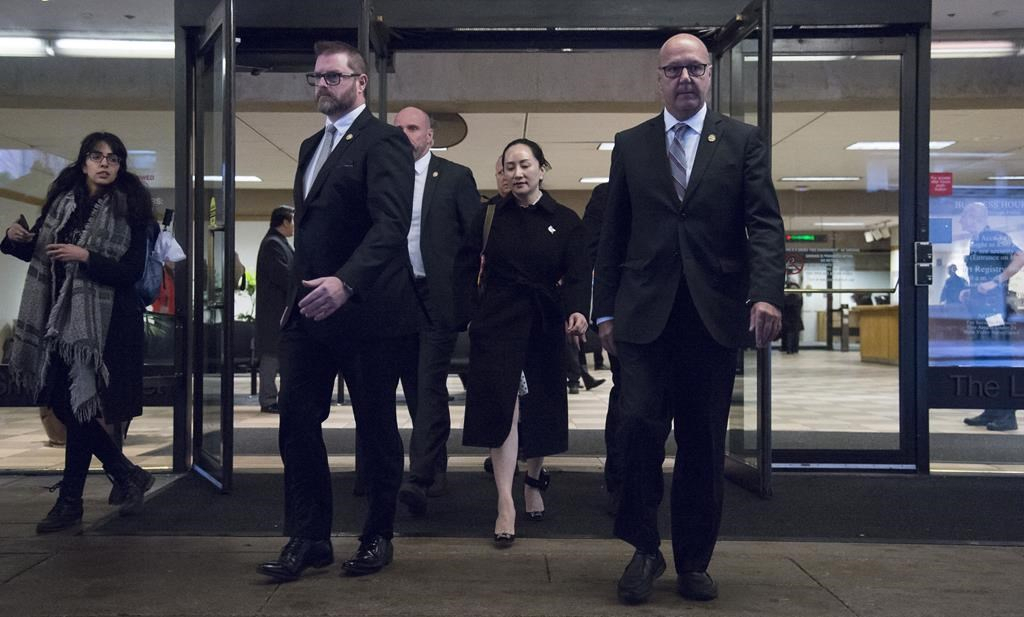B.C. judge finds double criminality in Huawei case; extradition process continues for Meng Wanzhou



Published Wednesday, May 27, 2020
VANCOUVER -- A B.C. Supreme Court judge has ruled that a critical test in the extradition case of Huawei executive Meng Wanzhou has been met, and the extradition process will continue.
In her 23-page decision, released Wednesday morning, Associate Chief Justice Heather Holmes indicated that taken as a whole, the Huawei chief financial officer's alleged crimes would also constitute a crime in Canada, a principle known as "double criminality." Read the full decision below.
In the closely watched ruling, Holmes wrote that U.S. trade sanctions on Iran can be considered as context to understand Meng's alleged fraud, without being an "intrinsic part" of the conduct.
"The effects of the U.S. sanctions may properly play a role in the double criminality analysis as part of the background or context against which the alleged conduct is examined," Holmes wrote.
Meng is charged with bank and wire fraud in the U.S. for allegedly misrepresenting Huawei's relationship with a subsidiary doing business in Iran to HSBC., which U.S. authorities later allege processed financial transactions that violated U.S. sanctions.
She and Huawei deny the charges.
"It is important to note that these allegations are unproven but must be taken as true for the purpose of the application," the justice wrote in her ruling, noting Meng intends to dispute them.
Her lawyers have argued that because Canada didn't have sanctions on Iran, the bank wouldn't have been placed at risk, there could not have been fraud, and thus there would be no crime in Canada.
But Justice Holmes did not agree with their argument.
She wrote that Meng's defence team would have each element of her conduct imported and considered on its own in Canada, but by doing so "the approach loses sight of their overall effect, and thus of the 'essence' of the alleged conduct."
"Ms. Meng's approach to the double criminality analysis would seriously limit Canada's ability to fulfill its international obligations in the extradition context for fraud and other economic crimes," Holmes wrote.
As a caveat, Holmes clarified that her ruling Wednesday makes no determination as to whether there is enough admissible evidence against Meng to justify committing her for trial in Canada. Meng does not face a trial in Canadian court, but meeting that threshold is a key requirement in order for Meng to be extradited to the U.S.
Meng and her lawyers are scheduled to appear in B.C. Supreme Court on June 3 for a case management conference. It is unclear whether Meng would be required to attend.
They plan to proceed with an argument that her Charter rights were violated when she was arrested at YVR back in December 2018.
Alleging an abuse of process, the defence team claims Meng was detained and questioned for three hours by Canada Border Services Agency as part of a "covert criminal conspiracy."
Essentially, their argument is her detention was part of a fishing expedition by Canadian and American authorities, who then tried to gather evidence that would bolster their case.
Both CBSA and the RCMP involved in her arrest have repeatedly denied any wrongdoing.
Meng's team also plans to argue her charges are politically motivated.
A judge would be asked to rule on the abuse of process application, and if Meng lost, her team would likely appeal.
Legal experts suggest her case could reach the Supreme Court of Canada, taking years to work its way through the justice system.
And Canada's justice minister would have to decide whether to actually surrender Meng to the authorities, a decision that could also be reviewed by the appellant court.
In her ruling, Justice Holmes calls this additional step "further protection against an unjust or oppressive result flowing from the consideration of foreign law."
Canada's Department of Justice said in a statement regarding the ruling that a hearing will be held at a later date.
This hearing will determine whether Meng's alleged conduct "provides sufficient evidence of the offence of fraud to meet the test for committal under the Extradition Act."
"Justice lawyers are committed to moving ahead with this process and court dates as expeditiously as possible, and will work with defense counsel and the court to do so," the Department of Justice said.
Huawei Canada said the company is "disappointed" by the decision made by Justice Holmes.
In a statement posted on Twitter, a spokesperson reiterated Huawei's belief that Meng did nothing wrong.
"We expect that Canada's judicial system will ultimately prove Ms. Meng's innocence. Ms. Meng's lawyers will continue to work tirelessly to see justice is served."
CTV News was in court for the ruling. Read back through live coverage below.
Here's the full ruling. Tap the icon in the top right to expand.














No comments:
Post a Comment
Comments always welcome!